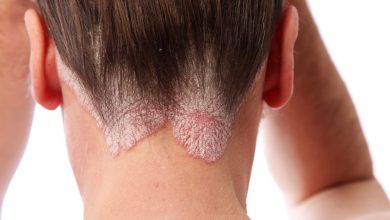psoriasis
How To Diagnose Psoriasis?
Psoriasis is an autoimmune disorder that usually affects the skin; however, it is different from other autoimmune disorders because there are no blood tests or imaging studies that can help diagnose it. When an individual suffers from psoriasis, their skin cells rapidly buildup. This buildup of cells creates scaling on the skin’s surface. These scales are usually whitish-silver in color with thick red patches. There is usually inflammation and redness around the scales. These scales are common in joints, but can develop anywhere on the body.
If you notice changes in your skin that look like psoriasis, the best thing to do is make an appointment with a dermatologist. Even though your self-diagnosis might be right, it is easy to mistake psoriasis with other diseases because of similarities. Only a dermatologist can diagnose your condition properly. How does a dermatologist diagnose psoriasis you may be wondering?
There are two methods that dermatologist use to diagnose psoriasis:
Physical Examination
Dermatologist are normally able to diagnose psoriasis with a physical examination, review of your medical history, and review of your family medical history. This can help reveal reasons why you may have an increased risk of having psoriasis. In addition to the medical history, your doctor will examine your affected areas with their naked eyes or with the help of a dermatoscope (a lighted magnifying tool). Your doctor will ask you of any flares you may be experiencing and of symptoms.
Biopsy
There are cases where the symptoms and the rash do not fully point towards psoriasis. This is when doctors turn to biopsies to confirm the diagnosis. A biopsy is when a small sample of the skin is removed by a tube-shaped device that snaps down when pressed. This removes a small portion of the skin. The skin sample is then sent to a lab to be examined. This can help determine if in fact you have psoriasis. It can also diagnose the type of psoriasis you have. It can take anywhere between 3-4 weeks to get the results of the biopsy. Once your doctor receives the result, your doctor may request an appointment to review the results and the treatment options.
Many times a doctor will want to perform a physical examination, ask for your medical history, ask for your family medical history and perform a biopsy to be able to accurately diagnose psoriasis. If you believe you suffer from psoriasis find a dermatologist and make an

